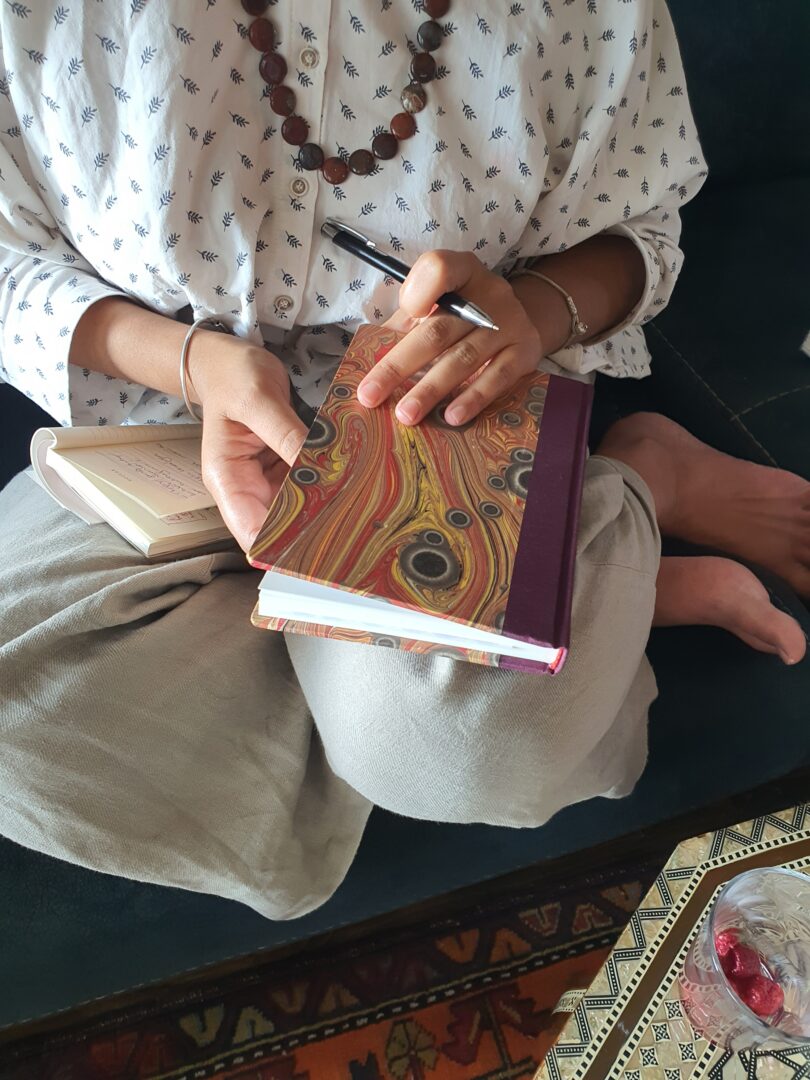Conducting field research in the Global South comes with its own challenges in various stages: pre-field, during fieldwork, and post-fieldwork. This thread contributes to the existing and somewhat frayed topic from the perspective of native scholars; simply put, those whose expertise aligns with the geography they grew up in. Instead of repeating the old and deeply Eurocentric insider/outsider dichotomy, we bring in the unique strengths and challenges such positionality entails in methodology: intimacy, care, complex relations with local politics, and vis-a-vis institutional bureaucracies including the academy itself, university as an establishment, diverse funding bodies, and ethics review boards. The combination of nativeness and the Global South (in our cases Pakistan, Palestine, Iran, and Turkey) creates unique dynamics for ethnographic fieldwork and, in our view, necessitates a separate conversation.
all kinds of obligatory, reciprocal, and asymmetrical relations that ethnographic fieldwork involves are now embroiled in our own vulnerabilities as female researchers from a particular background in those contexts.
The complexity arising from this discussion is partly embedded in anthropology’s approach to ethnographic fieldwork. Fieldwork as a practice and ethnography have been questioned, studied, and analysed (Gupta & Ferguson, 1997). The field’s transformative power operates differently on us, too. Further, all kinds of obligatory, reciprocal, and asymmetrical relations that ethnographic fieldwork involves are now embroiled in our own vulnerabilities as female researchers from a particular background in those contexts. The power dynamics embedded in ethnographic field research have so far been evaluated in terms of emotionality (Davies & Spencer, 2010), positionality (Abu-Lughod, 2008; Anderson, 2021; Behar & Gordon, 1995; Clifford, 1990; Clifford & Marcus, 2023; James et al., 1997; Reyes, 2020), and its remnants (Chung, 2009; Davies & Spencer, 2010; Faubion & Marcus, 2009). Yet we hope to be part of a newer set of conversations on nativeness, including its limits, as they emerge during encounters in the field.
A common theme of the contributions in this thread centres around relations between researcher, interlocutors, and the field. As Savannah Shange notes, “fieldwork is never completely out of sight of another set of fields—cotton, cane, tobacco, rice” (Jobson, 2019, p. 261). From this perspective, locals might be seen as informants whose “raw materials” – their “data” – need to be excavated, refined, transmitted, translated, and corrected by the researcher to become legible and useful. This is a type of power relation in which the researcher is seen as more knowledgeable and qualified than the informant in understanding and giving meaning to their experiences. Criticizing this approach, the contributors to the thread highlight various aspects of engaging in fieldwork from ethical, structural and moral perspectives and how intimacy (Aydin, in this thread), commitment, and integrity are to be approached. They explore the institutional limits vis-à-vis the unique positionality of the researcher, the researcher’s nativeness, and the particular demands of research practice in the Global South. Although it may appear harmless, the field is often associated with traumas and incidents such as displacement, imprisonment, mental illnesses, and sometimes death of the native researchers who, by doing their work in those contexts, are exposed to threats.
In the Global South, fieldwork is marked by colonial legacies as processes reaching into the present. Indeed, colonial encounters are not moments in history. They are ongoing processes and the region, including its political and social realities, is still affected by these encounters. This has complex consequences for the nativeness of Western-educate researchers (Qato, in this thread), funded and employed by Western institutions. It influences their rapport with research participants and connection to the field. Differences between researchers and their interlocutors challenge rapport and engagement in fieldwork more generally (Low and Merry 2010). However, local perspectives on native scholars living and working abroad prompt another set of challenges altogether (Kalia, in this issue).
Our proximity, intellectual care, and own politics are urging us to engage reflexively in conversations and in writing.
As the thread demonstrates, the field is not only a site of research but also a site of self-reflection. The researcher does not only have to navigate the field but also grapples with questions such as: Why do we live in the West? Were we refugees ourselves? Do our accents give us away? Are we allowed to have opinions on local politics? What does it mean to distance oneself, and how is that linked to ethical research? How should we bridge the gap between academic work and the real world? What are the consequences of the fact that we develop our analyses only after we complete our fieldwork, that our opinions and interpretations are likely to become more settled only months later?
The positions that some of us hold as (public) intellectuals and researchers complicate existing concerns about engagement (Sadeghi, in this issue). Our ability to speak and write more freely than our interlocutors can easily “distance a friend rather than constitute a form of knowledge” (Moskowitz 2015). This is not because we conceal our political opinions or values from our interlocutors. It is because of the power and authority embedded not only in day-to-day life but also in writing as an inherently political practice.
Political engagement is a double-edged sword. It is linked to moral obligations of the researcher. Yet it comes with severe consequences. Our proximity, intellectual care, and own politics are urging us to engage reflexively in conversations and in writing. This means remaining intelligible to our interlocutors, not only in local languages, such as Persian, Turkish, Urdu and Arabic, but also by finding and using the correct genre and idiom. This is an ongoing process for all of us which is partly connected to the dilemmas of engaged anthropology more generally, as observed by Low and Merry (2010). It is also a dynamic and multifaceted process through which we have to go through with every shift in the political landscape (and considering the political vulnerability of the Global South, those shifts occur most frequently). Finally, we carry various responsibilities to the field, our interlocutors and ourselves. In this regard, the obligations imposed on us by academic institutions (Sehlikoglu, in this thread) often expose and highlight our own vulnerabilities.
Acknowledgements: This thread is part of the ERC StG 2019 TAKHAYYUL Project (853230). We would like to thank the editorial assistants M Zişan Köker and Hazal Aydın, and those who participated in this conversation, including Ala’a Shehabi, Hannah Sender, Yuan He, Elena Kucherenko, Gulnar Hasnain, Nicki Kindersley and Natalie Garland. We also thank the reviewers of individual papers and the editors of Allegra Lab, Till Mostowlansky and Faduma Abukar Mursal.
Photo credit: A woman holding a notebook (Photo by Sehlikoglu).
References
Abu-Lughod, L. (2008). Writing against culture. In The cultural geography reader (pp. 62-71). Routledge.
Anderson, E. R. (2021). Positionality, privilege, and possibility: The ethnographer “at home” as an uncomfortable insider. Anthropology and humanism, 46(2), 212-225.
Behar, R., & Gordon, D. A. (1995). Women writing culture. Univ of California Press.
Chung, J. A. (2009). Ethnographic Remnants: Range and Limits of the Social Method. In J. D. Faubion & G. E. Marcus (Eds.), Fieldwork is not what it used to be: Learning anthropology’s method in a zime oftTransition (pp. 52-72). Cornell University Press.
Clifford, J. (1990). Notes on (field) notes. Fieldnotes: The makings of anthropology, 1990, 47-70.
Clifford, J., & Marcus, G. E. (2023). Writing culture: The poetics and politics of ethnography. Univ of California Press.
Davies, J., & Spencer, D. (2010). Emotions in the field: The psychology and anthropology of fieldwork experience. Stanford University Press.
Faubion, J. D., & Marcus, G. E. (2009). Fieldwork is not what it used to be: Learning anthropology’s method in a time of transition. Cornell University Press.
Gupta, A., & Ferguson, J. (1997). Discipline and practice:‘The field’as site, method, and location in anthropology. Anthropological locations: Boundaries and grounds of a field science, 100, 1-47.
James, A., Hockey, J., & Dawson, A. (1997). After writing culture. Epistemology and praxis in contemporary anthropology.
Jobson, R.C. (2020). “Year in review: The case for letting anthropology burn: sociocultural snthropology in 2019.” American Anthropologist. Vol. 122. No. 2. Pp. 259–271.
Low, Setha M. and Merry, S. E. (2010). “Engaged anthropology: diversity and dilemmas.” Current Anthropology. Vol. 51. No. S2. Pp. 203-226.
Madden, R. Ed. (2010). Being ethnographic: A guide to the theory and practice of ethnography
Moskowitz, N. (2015). “Engagement, alienation, and anthropology’s new moral dilemmas” Anthropology and humanism, 40: 35-57.
Manoussaki-Adamopoulou, I., Sedacca, N., Benchekroun, R., Knight, A., & Saavedra, A. C. (2022). “Reflecting on crisis: Ethics of dis/engagement in migration research.” Migration and society, Vol. 5. No. 1. Pp.124-135.
Reyes, V. (2020). Ethnographic toolkit: Strategic positionality and researchers’ visible and invisible tools in field research. Ethnography, 21(2), 220-240.
Abstract: This article introduces the collection of pieces that examine the unique challenges and complexities faced by native scholars conducting fieldwork in the Global South. It specifically focuses on research and researchers from Pakistan, Palestine, Iran, and Turkey. Moving beyond the conventions of insider/outsider dualities, it explores how researchers navigate intimacy, care, local politics, and institutional bureaucracies while conducting research in their home regions. The authors highlight how nativeness combines with Global South contexts to create distinct research dynamics, particularly for scholars educated and employed by Western institutions. The introduction addresses several key themes: the transformation of researcher-field relationships, ethical considerations in politically sensitive contexts, language and translation challenges, and the ongoing impact of colonial legacies. It particularly emphasizes how native researchers must balance their academic obligations with local political sensitivities, personal safety concerns, and moral responsibilities to their communities. It explains how authors argue that these experiences necessitate new frameworks for understanding fieldwork methodology, particularly regarding how native researchers navigate their multiple positionalities and responsibilities while maintaining research integrity and personal safety in volatile political contexts.






